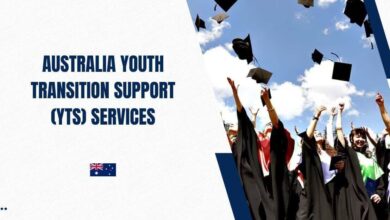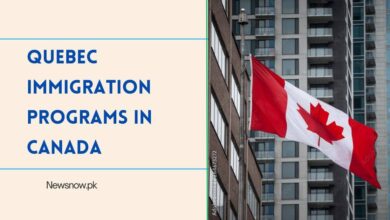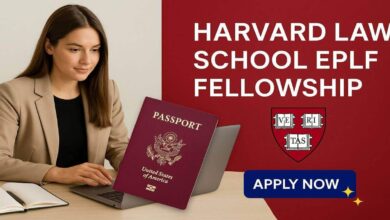Latest Form I-129 for Nonimmigrant Workers – Available from USCIS
U.S. Citizenship and Immigration Services (USCIS) will require all Form I-129 petitions (Petition for a Nonimmigrant Worker) to use the newly released edition. This update affects thousands of visa applicants and sponsoring employers applying for employment-based nonimmigrant visas such as H-1B, L-1, O-1, and more.
Using older versions after this date will result in automatic rejection.
Key Changes to Form I-129:
- New Edition Mandatory: Only the 01/17/25 edition of Form I-129 will be accepted by USCIS starting. Ensure all pages belong to this edition; mismatched or missing pages cause rejection.
- Expanded Visa Coverage: The updated form now includes additional visa types eligible for extension or change of status, including:
- E-1 (Treaty Traders)
- E-2 (Treaty Investors)
- E-3 (Australian professionals)
- H-1B1 (Chile/Singapore nationals)
- TN (Canadian and Mexican professionals under USMCA)
- L-1 Blanket Petitions: For L-1 visas filed under blanket petitions, USCIS now requires submission of both:
- Form I-129
- Form I-129S (Nonimmigrant Petition Based on Blanket L Petition)
A previously approved I-129S copy must also be included for extensions or changes of status.
- Dependent Applications: Dependents applying for H-4 or L-2 status using Form I-539 or employment authorization (Form I-765) must submit these forms together with the primary I-129 petition. Separate submissions can cause processing delays.
- Technology Export Certification (Part 6): This section is now mandatory only for select visa types (H-1B, H-1B1, L-1, O-1A). Blanket L (LZ) applicants are exempt.
- No TARP Disclosure Needed: Employers who received assistance under the Troubled Asset Relief Program (TARP) are no longer required to answer related questions on the H-1B supplement, simplifying compliance.
- Signature and Form Compliance: USCIS enforces strict rules — no typed, stamped, or unauthorized electronic signatures allowed. Forms with missing or misnumbered pages or mixed edition dates will be rejected.
Tips to Avoid Application Rejection:
- Double-check that every page of your Form I-129 has the edition date 01/17/25 clearly printed.
- Always submit dependent applications (Forms I-539 and I-765) alongside the primary petition.
- Include Form I-129S when filing L-1 blanket petitions or extensions.
- Use only USCIS-accepted signature methods.
- Review USCIS official instructions carefully before submitting.
Read Also: USA Citizenship Application – Disability Exemptions Policy
Documents for foreigners:
Foreign nationals should carry:
- A valid visa
- A copy of the Form I-797 approval notice, or
- An approved Form I-129S (for L-1 Blanket visa holders)
Having these documents handy helps ensure a smooth entry at the U.S. port of entry.
Instructions for CNMI Applicants:
Applicants filing from the Commonwealth of the Northern Mariana Islands (CNMI) must:
- Use a CNMI P.O. Box address on their forms.
- Mail petitions to the Texas Service Center, not the general USCIS address.
- Follow specific mailing instructions for USPS vs. courier services.
Benefits:
- Compliance with USCIS Requirements
Ensures your petition is accepted and processed without automatic rejection. - Expanded Visa Coverage
Covers additional visa categories like E-1, E-2, E-3, H-1B1, and TN, simplifying petition submissions. - Streamlined Process for L-1 Blanket Petitions
New requirement for Form I-129S helps clarify blanket petition eligibility and reduces errors. - Reduced Processing Delays
Proper packaging of dependent forms (I-539, I-765) with the primary petition speeds up adjudication. - Simplified Employer Reporting
Exemption from TARP disclosure eases compliance burdens for employers receiving federal assistance. - Clear Signature Requirements
Strict signature guidelines help prevent rejections due to improper authorization. - Updated Technology Export Certification Rules
Limits certification to specific visa types, reducing unnecessary paperwork. - Special Instructions for CNMI Applicants
Clear filing guidelines improve accuracy for applicants in the Commonwealth of the Northern Mariana Islands. - Improved Accuracy and Data Integrity
Requiring all pages to be from the same edition ensures consistent and up-to-date information is submitted.
Resources:
- Official Form I-129 page: https://www.uscis.gov/i-129
- USCIS filing tips and updates: USCIS News
Conclusion:
The latest USCIS Form I-129 edition for visa petitions. Be sure to follow all new filing requirements, especially for expanded visa categories and L-1 blanket petitions, and package dependent forms correctly. Stay informed to avoid costly delays and ensure your application is accepted.
Frequently Asked Questions:
What are the signature requirements?
USCIS requires original handwritten signatures. Typed, stamped, or electronic signatures not authorized by USCIS will cause rejection.
What is Form I-129?
Form I-129, Petition for a Nonimmigrant Worker, is used by employers to petition USCIS for permission to employ foreign workers in the U.S. under various nonimmigrant visa categories.
Are employers required to disclose TARP assistance?
No. Employers who received financial assistance under the Troubled Asset Relief Program (TARP) are exempt from answering related questions on the H-1B supplement.




